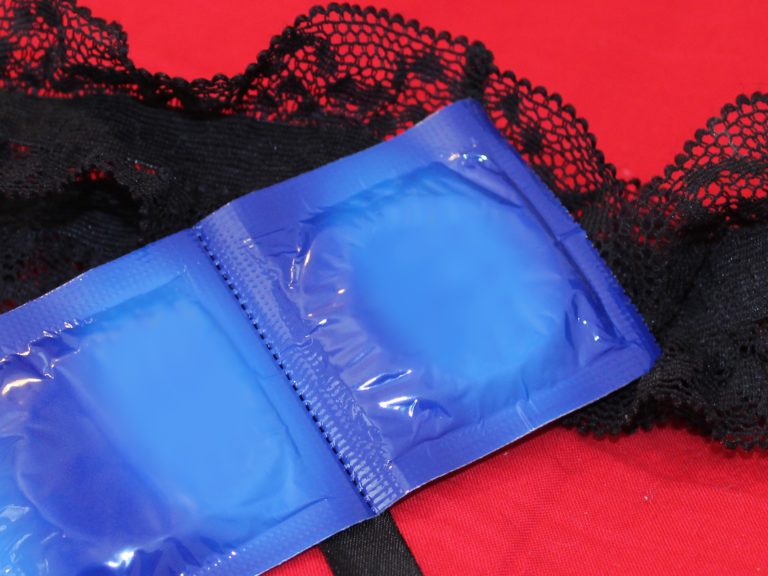People’s lives have changed significantly with the advent of COVID-19, to the point that everyday activities such as going out with friends, going to work, or shaking hands have become risk factors for our health. The most drastic measure that people have strongly suffered is undoubtedly the quarantine. The issue of not being able to go out and socialize has both psychological and physical consequences.
During the struggle to stop the increase in virus infections, there is a global shutdown of production and the economic sector. While countries like China and South Korea have passed the danger stage, the market in the West has now come to a standstill, leaving only food production and distribution and the health sector active.
This situation has led to a larger economic crisis in recent years, comparable only to that of 1930. Among the most vulnerable sectors are sex workers. In an era where social distancing is a priority, work based on contact between bodies is a risk that health authorities cannot ignore. So, how can sex workers make for a living and what are the consequences of their economical status?
Prostitution amid quarantine

While sex workers are going through a difficult time, where their clientele decimated, as long as demand exists, there is supply, and there are people, both clients and sex workers, willing to take the risk. Of course, for many in the prostitution business, it is a necessity to work daily, as their livelihood depends solely on prostitution.
Usually, in an everyday situation, people could go on the internet to search for reliable local escort sites as a luxury escort in Sydney you can find on webs like Skokka, and through that medium, start negotiations to consummate the contracted services. However, with the current restrictions, prostitution has begun to move into irregular forms of operation.
Clandestine encounters take place secretly. Clients take advantage of food shopping outings to make detours to meet sex workers. They usually meet them in their rented houses or apartments to consummate their transactions. This commercial exchange occurs without any regulation and outside the law. Poses a risk for those involved, who become in the focus of contagion.
Risks of contracting the virus through sexual contact
COVID-19 is a virus that affects the respiratory tract and spread by inhaling the saliva secretion of an infected person through mucous membranes. When speaking, sneezing, and coughing, people emit tiny drops of saliva that are often unnoticeable and come into contact with the mucous membrane of anyone nearby.
Given the ease with which it can transmit, sexual intercourse is a high-risk practice. While there is no evidence yet that the virus is in semen or vaginal fluids, this does not mean that it is not possible to spread the virus through that way. Also, even if the virus not found in vaginal fluids or semen, the closeness of the sexual act still makes it risky.
Kissing is one of the most common practices during intercourse, as are moans and cries that can allow secure transmission of the virus through saliva. Oral sex itself involves direct contact with the area most at risk for contagion, the mouth. So even if it is not a sexually transmitted virus, the risk of getting it through intercourse is very high.
What protective measures should be taken?

The first measure is to avoid contact, not to be close to anyone, let alone have sex. Avoiding intercourse, especially if it is with a person who is not your partner, does it with sex workers are a more risk because they maintain closeness with a variety of people, increasing the risk of contagious the virus. This would be a perfect scenario, but many people nowadays don’t have a partner and as we have already said the sex workers have to make for a living, so this is the only option for some people.
If you decide to have a sexual encounter even with the warnings, the most prudent thing to do is to follow the measures outlined below:
Avoiding kissing: The virus is mainly found in saliva and spread by contact with the mucous membranes. A kiss is a high-risk route of transmission.
Use a condom: Sexual protection is something you should do with or without the presence of the COVID-19 due to sexually transmitted diseases, but it is not too much to remember about its mandatory use. It is important to note that although the virus has not found in semen or vaginal fluids, transmission through sex is not ruled out.
Use low-risk positions: Low-risk positions would be those where people do not face to face.

Wearing gloves and a mask: The mask will prevent the person from expelling saliva and gloves from touching surfaces infected with the virus, although it should be remembered that touching the face while wearing the gloves should be avoided.
Hygiene: Maintain impeccable hygiene before and after the event by washing thoroughly with soap.
Even taking measures, the risk of contagion persists. It is necessary to keep a strict quarantine after intercourse, that’s the only way not to infect anyone in case of contracting the virus. Even if no symptoms observed, this does not guarantee that you will not carry the virus and can transmit it to others, so you should not trust the healthy appearance of others or yourself.

